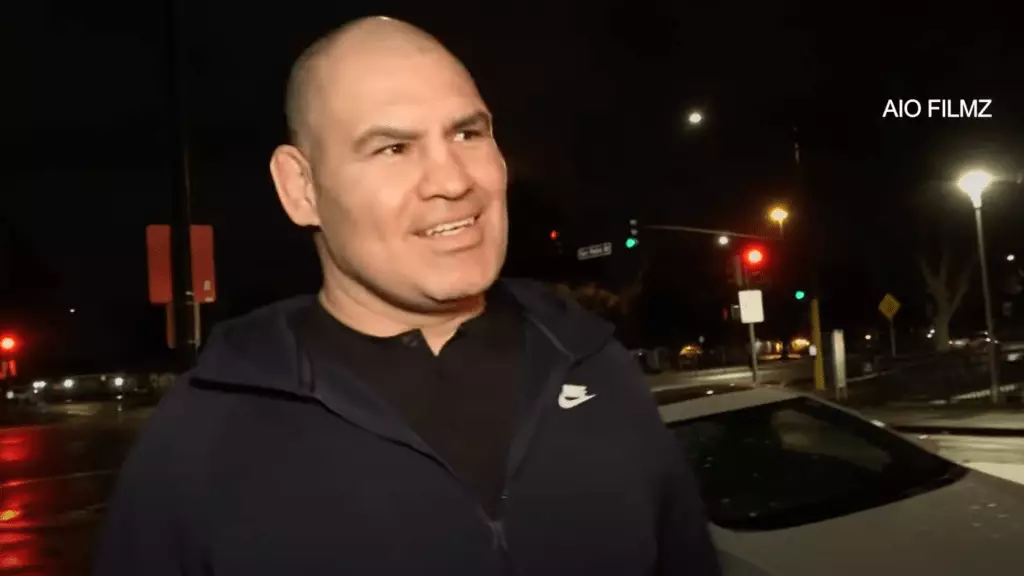Former heavyweight champion Cain Velasquez has recently made a significant transition from the octagon to the managerial side of mixed martial arts by joining the Global Fight League (GFL). At 42 years old, Velasquez is opting for a new role within this nascent organization instead of continuing his fighting career. This move signifies not only a change in personal trajectory but also reflects the evolving landscape of professional combat sports.
Velasquez’s stature in the MMA community is immense, and the decision to take on a management role within the GFL highlights his commitment to the sport beyond just competing. By bringing on board his long-time trainer, Javier Mendez, as head coach, Velasquez aims to establish a strong foundation for his team in this innovative league. Mendez is highly regarded, having trained successful fighters including Khabib Nurmagomedov and Daniel Cormier, making him an asset to the GFL’s ambitions.
The GFL, which is designed to incorporate both male and female fighters, plans to launch as a six-team organization, showcasing events on an international scale. This structure suggests a fresh concept in combat sports—a league approach that could position itself distinctly from traditional promotional formats. The league is promising a unique revenue distribution model, claiming that earnings will be shared equitably between fighters and the promotion. This equitable approach may attract fighters disillusioned with conventional promotional practices where income distribution often favors the organization over its athletes.
The anticipation surrounding the GFL is palpable, particularly with its forthcoming draft slated for January 24. However, this date coincides with a critical moment in Velasquez’s life—his sentencing for serious criminal charges, including attempted murder, stemming from an incident involving his son. This juxtaposition between Velasquez’s new professional endeavor and his legal troubles presents a complex narrative that will likely attract considerable media attention.
The Shadows of Controversy
Velasquez’s legal issues are deeply entwined with a tragic personal crisis; the charges against him are rooted in a father’s desperate attempt to protect his child from an alleged predator. While many may empathize with Velasquez’s motivation, the gravity of his actions raises ethical and legal questions. The accusations against him, which include attempted murder and several counts of assault with a firearm, have drawn public scrutiny and sparked debate regarding the limits of parental protection.
As the legal proceedings unfold, the impact on Velasquez’s reputation and career could be profound. While he transitions into the managerial role and focuses on fostering talent in the GFL, the specter of his charges looms large. The interconnectedness of his legal troubles and his new position may affect the enthusiasm and perception of the GFL among fans and fighters alike.
Cain Velasquez’s evolution from fighter to manager within the Global Fight League signifies a pivotal moment not only for him personally but also for the landscape of mixed martial arts. As he grapples with his past decisions and current reality, the future of the GFL and Velasquez’s role in it could set new benchmarks for athletes transitioning into management. The intersection of sports, ethics, and personal circumstance creates a complex narrative that highlights the intricacies involved in the lives of athletes. Velasquez’s journey is far from straightforward, and it will be crucial to see how his story unfolds against the backdrop of both his legal battles and the emergence of the GFL.

